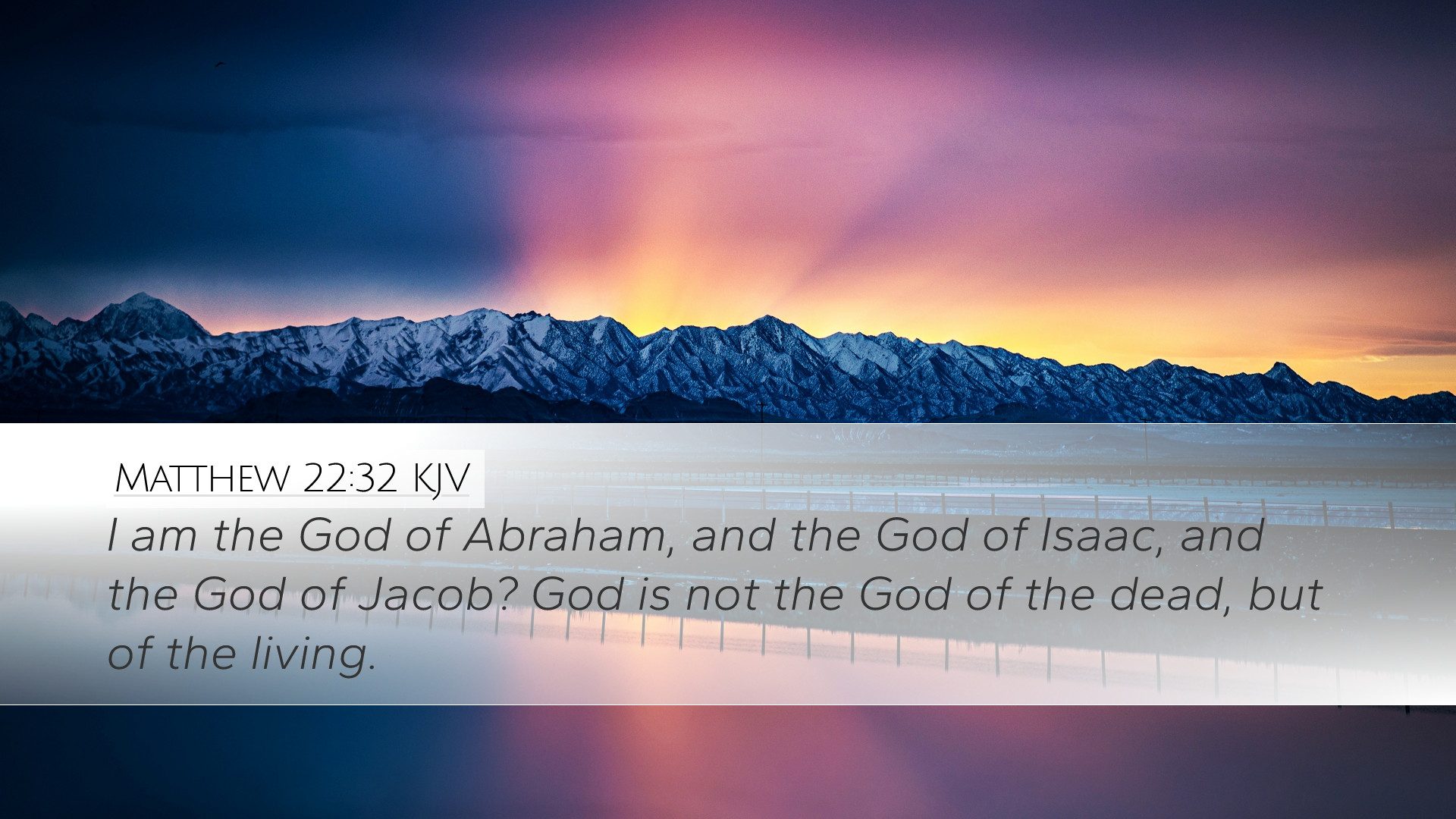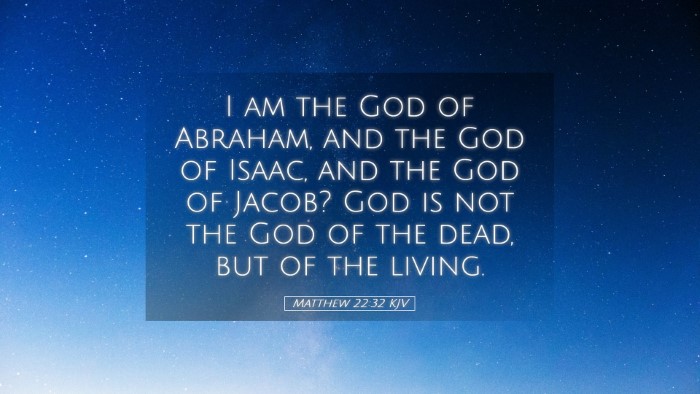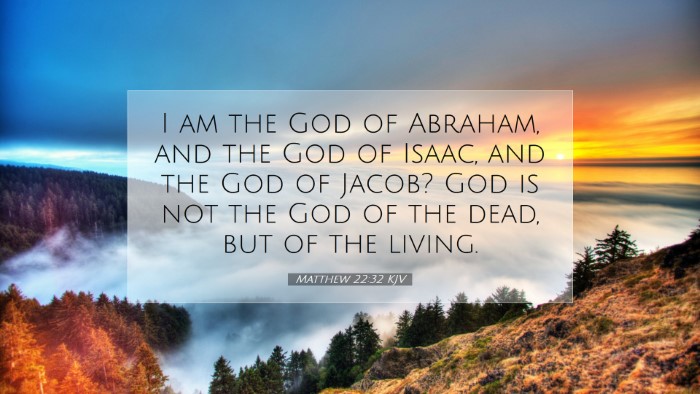Commentary on Matthew 22:32
In Matthew 22:32, Jesus quotes from Exodus 3:6, where God speaks to Moses from the burning bush, declaring, "I am the God of Abraham, the God of Isaac, and the God of Jacob." This statement is profound, establishing not only the reality of resurrection but also God’s enduring relationship with His people. Below, we examine the insights provided by various public domain commentaries.
Contextual Background
This verse comes in the context of a conversation with the Sadducees, a group known for their denial of the resurrection of the dead. They approach Jesus with a hypothetical scenario aimed at illuminating what they perceive as the absurdity of resurrection. Jesus' response goes beyond refuting their specific question; it affirms the reality of life after death by interpreting Scripture correctly. This discourse highlights Jesus' authority and the proper understanding of God's nature.
Insights from Matthew Henry
Matthew Henry emphasizes the significance of Jesus' statement about God's relationship with Abraham, Isaac, and Jacob. He notes that
- God's Declaration of Identity: The phrase "I am" underscores God's eternal presence and continuous relationship with the Patriarchs, indicating that they remain alive in His sight.
- The Nature of God: Henry stresses that God is not simply the God of the dead but of the living, pointing to the affirmation that believers are eternally secure in His promises.
- Empowerment Through Scripture: He highlights how Jesus uses Scripture to counter the Sadducees' misconceptions, advocating for a proper understanding of spiritual truths.
Insights from Albert Barnes
Albert Barnes provides a detailed analysis of the theological implications of Jesus' declaration. He argues that:
- Continuity of Faith: The verse exemplifies that the essence of faith transcends physical death, as God remains the God of those who have died.
- Resurrection Affirmed: Barnes elucidates that Jesus' argument confirms the truth of resurrection, asserting that God is actively engaged with the faithful in a way that guarantees their future life.
- Understanding God's Time: God exists outside of time; thus, past patriarchs are still in relationship with Him, which underlines a timeline where death is not an end, but a continuation.
Insights from Adam Clarke
Adam Clarke offers a rich theological perspective, focusing on the implications of God’s identity. He interprets the phrase as emphasizes that:
- God's Faithfulness: Clarke underscores that God's covenant with the Patriarchs signifies His unwavering promise, ensuring that they still hold significance in His plan even after death.
- Evidence of Life After Death: He sees this as evidence that there is a life beyond the grave, as Jesus unequivocally states that these figures are indeed alive to God.
- Teachings for Believers: Clarke encourages believers to view their relationship with God in light of the promise of eternal life, inviting a deeper reflection on their own spiritual journeys.
Theological Significances
Matthew 22:32 presents several theological considerations:
- Resurrection and Eternal Life: The affirmation of the resurrection becomes a cornerstone of Christian doctrine, providing hope and assurance to believers of their eternal existence with God.
- God’s Nature and Relationship: God is depicted not merely as a historical figure associated with the Patriarchs but as a living God who maintains a relational presence.
- Scriptural Authority: This passage serves as a crucial case for the authority of Scripture in theological debates and the importance of sound hermeneutics.
Practical Applications
For pastors, students, and theologians, this verse affords several practical applications:
- Encouragement in Ministry: The assurance of eternal life can encourage those in ministry to preach hope and the promise of resurrection.
- Clarifying Resurrection Theology: It is vital to teach congregations about the implications of resurrection as foundational to the Christian faith.
- Engagement with Doubt: Addressing questions about afterlife can help in ministering to the doubts of congregants and seekers alike, grounding discussions in Scripture.
Conclusion
Matthew 22:32 serves as a powerful reminder of the continuity of God's relationship with His people across generations. The insights from esteemed commentators shed light on the multifaceted layers of meaning found in this verse, reinforcing concepts of resurrection, the living nature of God, and the vital role of Scripture. As we contemplate this profound message, may it inspire deeper faith and commitment to God's promises.


